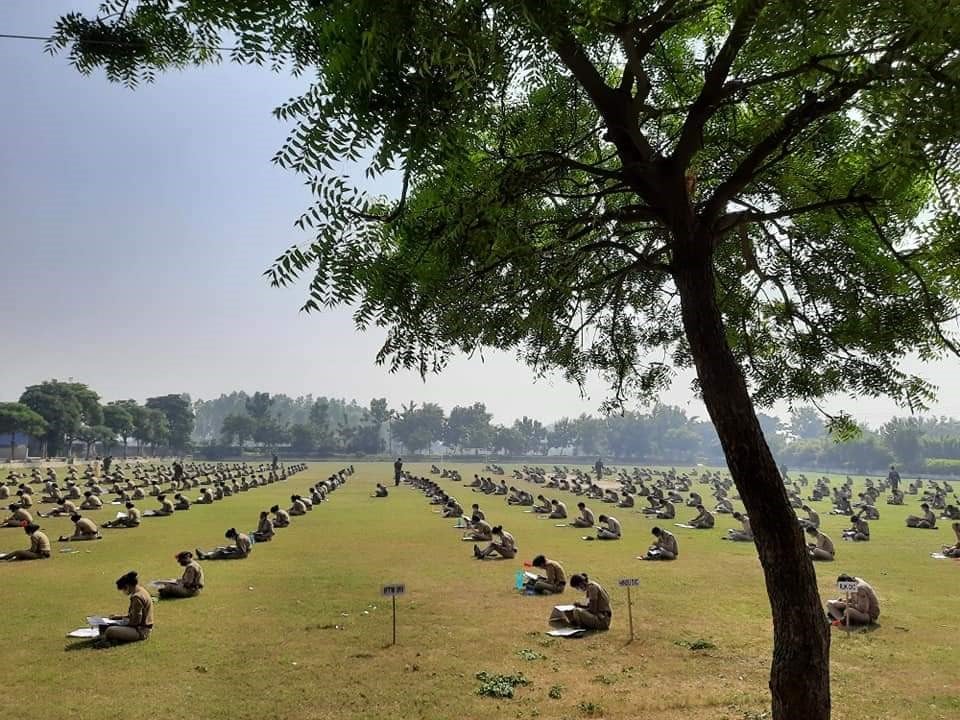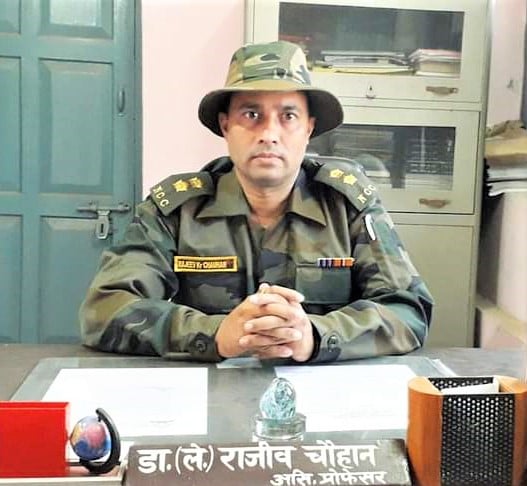Lieutenant Dr. Rajeev Chauhan, currently an Associate Professor in the Defence Studies Department at Hindu College, Moradabad, Uttar Pradesh, embarked on his journey with the National Cadet Corps (NCC) back in 2013, taking the helm of the 1/24 UP Battalion. After rigorous training at the Officers Training Academy in Kamptee, Nagpur, he earned the rank of Lieutenant and assumed the role of Associate NCC Officer.
Among his notable achievements is his latest endeavor: a meticulously crafted book on the NCC, designed to align seamlessly with the latest syllabus. Before this, he authored esteemed works such as “Bharat Aur Nepal Ke Samrik Sambandh” (India and Nepal’s Diplomatic Relations), “Antarrashtriya Kanoon Avam Viswa Shanti” (International Law and World Peace), and “National Cadet Corps (A Path of Unity and Discipline).” Additionally, he serves as the Chief Editor of the Suraksha Sarthi Research Journal.
In a candid conversation with The Interview World, Lieutenant Chauhan shares insights into the profound significance of the NCC and its transformative impact on the lives of students.
Q: Could you elaborate on the central theme of your book?
A: My book delves into the rich tapestry of NCC history and encompasses a diverse array of subjects, including insights into the armed forces, military training, drill techniques, field craft, map studies, field engineering, communication, leadership, disaster management, physical education, first aid, self-defense, and environmental awareness. By encapsulating these essential topics, which form the core of the NCC syllabus, I aim to facilitate a deeper understanding of the subject matter. It’s noteworthy that the Government has recognized the pivotal role of NCC by incorporating it into the National Education Policy (NEP) as an independent subject at both school and college levels.
Q: What are the key advantages of studying these subjects?
A: Enrollment in the NCC program, which boasts over 15 lakh students nationwide, offers tangible benefits in academic and career pursuits. Individuals holding B/C certificates in NCC receive preferential treatment in various spheres, including exemptions from written examinations in military and police recruitment processes. Similarly, candidates applying for the Combined Defence Services (CDS) examination enjoy similar privileges, with their focus primarily on the interview stage. These advantages significantly enhance career prospects in defense, police, paramilitary, and related fields, fostering a pathway for holistic growth and development.
Q: How does NCC foster a nurturing ecosystem for instilling patriotic values?
A: Established on 16th July 1948, the NCC stands as a beacon for character development, fostering camaraderie, discipline, secularism, a spirit of adventure, and a commitment to selfless service among the youth. Beyond individual growth, it serves as a catalyst for cultivating a cadre of organized, skilled, and motivated young leaders capable of serving the nation across diverse career paths. Moreover, the NCC serves as a platform for inspiring young Indians to pursue careers in the armed forces, thereby contributing to the nation’s defense preparedness.
Q: Do you advocate for mandatory short-term military service for Indian citizens?
A: I ardently support the proposition of mandating short-term military service for every citizen of India. Such a measure would offer invaluable insights into our nation’s defense imperatives, particularly along our borders. Furthermore, in times of crisis, these individuals play a significant role in serving the nation effectively, thereby bolstering our internal security apparatus.
Q: When would be the optimal time to implement mandatory short-term military service?
A: Numerous nations, including Brazil, France, Greece, and Sweden, have embraced compulsory military service ranging from a few months to a year. Following this precedent, India could introduce a similar system upon citizens reaching 18, ensuring their active participation in national defense endeavors.



